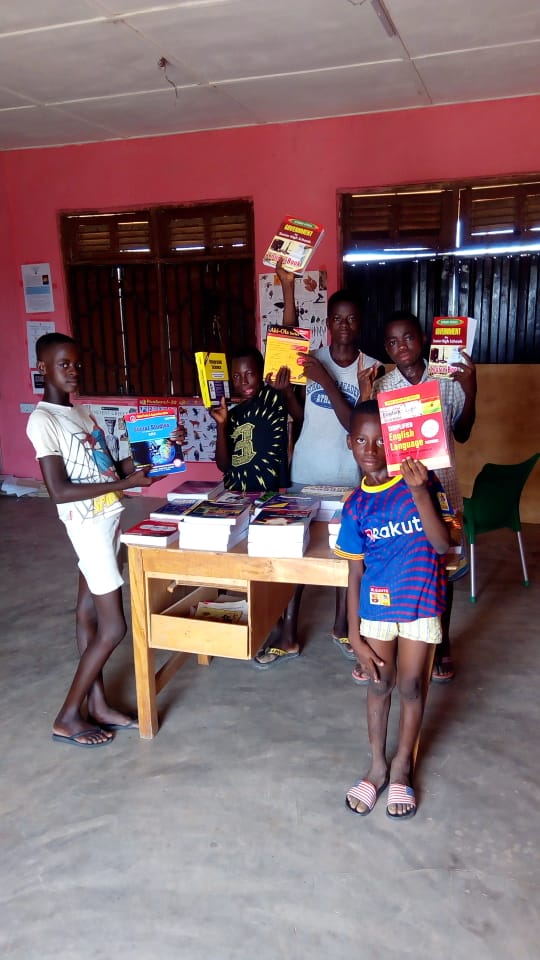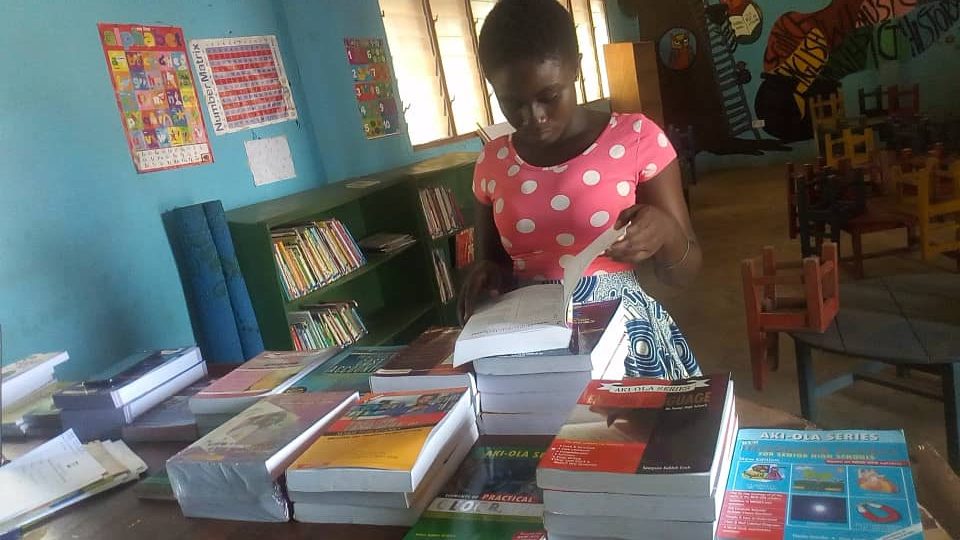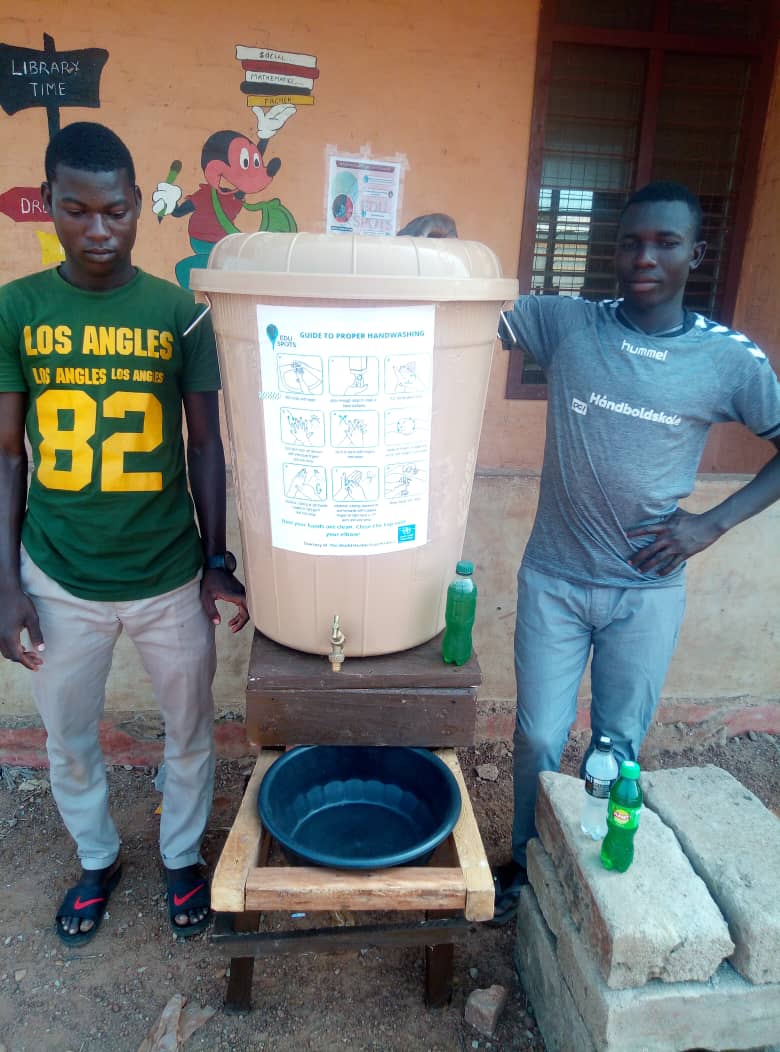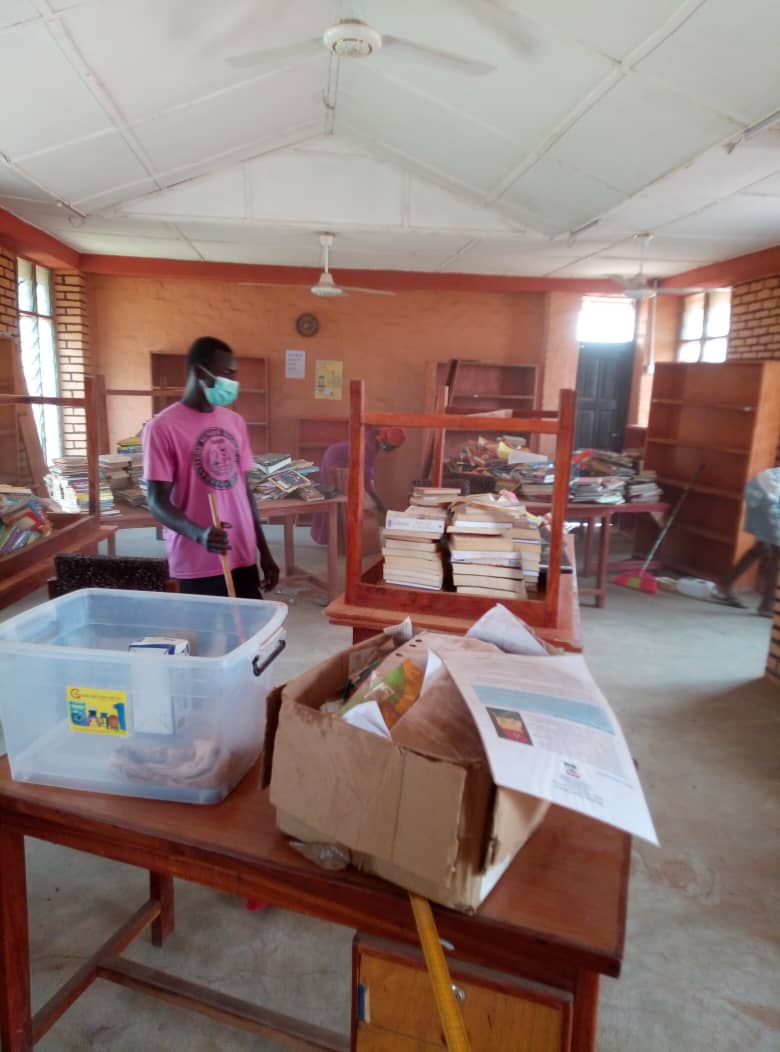The Covid 19 pandemic is probably the worst threat to human wellbeing in our lifetime. As an organization that believes in and capitalizes on the power of human interactions to inspire social and educational change, the necessary measures of social distancing have served us an entropic blow, too.
Our response has been one of emergent (to protect the safety and wellbeing of our communities) and strategic (to limit the impact of the virus on the educational outcomes of the students we serve). This article highlights our response as an organisation.
One of the earliest proactive measures we took was to advise our communities to close down their learning centers, and halt all club and mentorship activities. Note that Ghanaian schools have been closed since late March, leaving most pupils with no access to learning at all, without the opportunity to progress learning online.
As all our libraries are community-led and owned, the final decision for closure was with the communities to decide. Absolutely all our communities took the advice in good faith, partly in line with a government directive at the time banning all public gatherings. This offered the communities the opportunity to carry-out intensive cleaning and disinfection exercises at their libraries, whilst observing all precautionary protocols.
Following this, we worked with communities to set up handwashing stations at the premises of the libraries; for use by the communities and the very controlled few number of people who intermittently patronise the library. Our support for communities comprised the provision of ‘Veronica Buckets’ (locally-designed sanitation set-ups, improvised from buckets with taps fixed for flow), with a metallic stand to fixate it; and liquid soap. We were particularly enthralled by the engenuity of some of our communities who manufactured their own liquid soaps to supplement what we provided. We were able to achieve this partly thanks to the fundraising efforts of pupils at Sevenoaks School who had been due to visit many of our communities this summer.
The covid 19 pandemic, unfortunately, is not only a health crisis; it spares no facet of our social construct as we know it: A 2020 UNESCO data suggests that nearly 1.37 billion students have been put out of school by lock-down orders. This has prompted worldwide focus on remote/distance learning. But for a large part of the [Ghanaian] communities that we serve, remote learning cannot invariably mean online learning; whilst close to 60% of the world’s populace have access to the internet, the statistic is 39.3% for Africa, and assuredly smaller for the communities we work with. So our approach to remote learning struck a good balance between online learning and non-internet-based remote learning strategies.
Our non-internet-based approach was to institute a books loaning system where Senior and Junior High School (S.H.S. & J.H.S.) students can borrow textbooks relevant to their respective syllabi for reading at home. Strict social distancing measures are observed throughout this process; pupils wash their hands at the set-up hand washing stations before going into the library, and only one person is allowed into the library at time for the necessary documentation processes. Books returned are also kept in an isolated box for 1 week to ensure safety of reusage by anyone else.
To guarantee the success of this model, we equipped our Spots with textbooks across subjects in the S.H.S & J.H.S syllabi, thanks to donations from the Fonthill Foundation, and pupils at Sevenoaks School. Typical books provided included textbooks on all core subjects (Mathematics, English, Science) for both S.H.S and J.H.S; textbooks on elective courses in all programmes in S.H.S (General Science, General Arts, Home Economics, Agricultural Science, Business); and selected African fiction story books. Each of these textbooks were accompanied with a textbook compilation of past examination questions.

 Feedback from communities on the usage of the books have been phenomenon so far: “Unlike the past when students were having difficulty accessing learning materials, the supply of locally authored textbooks to the library is a dream come true,” remarked Mr. Alhassan Hamza, a teacher and unit community Chair of the kalpohin community, one of our beneficiary communities. Another of our project leaders, Adu Boahen observed after a week of loaning books to students in the Akumadan community; “Members who borrow books feel that they are in school despite the lockdown because they do not lack any reading materials in their houses because of the books available.” These are just a few of similar comments reported across the network on the impact of this over a relatively short time.
Feedback from communities on the usage of the books have been phenomenon so far: “Unlike the past when students were having difficulty accessing learning materials, the supply of locally authored textbooks to the library is a dream come true,” remarked Mr. Alhassan Hamza, a teacher and unit community Chair of the kalpohin community, one of our beneficiary communities. Another of our project leaders, Adu Boahen observed after a week of loaning books to students in the Akumadan community; “Members who borrow books feel that they are in school despite the lockdown because they do not lack any reading materials in their houses because of the books available.” These are just a few of similar comments reported across the network on the impact of this over a relatively short time.
 Our partially online-based strategy leverages on our enthusiastic volunteer capacity and social media networks. This involves online extensions of our EduLit and EduSTEM programmes in the forms of weekly #Stayhome STEM challenges and literacy lessons. These are directly sent to volunteers who then find ways of reaching out to students via phone calls or Whatsapp (for students that use smartphones), they are also posted on our online platforms for parents and the wider social media community to access them for free. Take a look at sample #Stayhomestemchallenges from our website:
Our partially online-based strategy leverages on our enthusiastic volunteer capacity and social media networks. This involves online extensions of our EduLit and EduSTEM programmes in the forms of weekly #Stayhome STEM challenges and literacy lessons. These are directly sent to volunteers who then find ways of reaching out to students via phone calls or Whatsapp (for students that use smartphones), they are also posted on our online platforms for parents and the wider social media community to access them for free. Take a look at sample #Stayhomestemchallenges from our website:
https://eduspots.org/education-hub/eduspots-science/stayathome/
 Last but not least, our fully online-based strategy was to introduce an online course aimed at fostering global citizenship among students across the world, and also equipping students and volunteers with the requisite skills to effectively lead community actions. We have limited free slots for Ghanaians participants. You may read more about this and sign up here:
Last but not least, our fully online-based strategy was to introduce an online course aimed at fostering global citizenship among students across the world, and also equipping students and volunteers with the requisite skills to effectively lead community actions. We have limited free slots for Ghanaians participants. You may read more about this and sign up here:
https://eduspots.org/online-courses/community-action-online-courses-during-covid-19/course-signup/
Whilst there is no silver lining to a threatened human health and wellbeing, the Covid 19 pandemic offers opportunities for reflection. A workable response, we believe, has to be driven by compassion, community and innovation!
Please do donate to www.justgiving.com/eduspots to enable us to fund further hand-washing stations and text books for our communities.
Ali Eliasu, Head of STEM and Sustainability, April 2020





